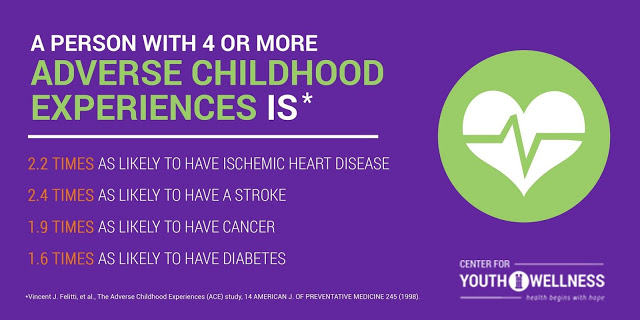Before I was a blogger, I worked for over a decade as a psychotherapist. One of the most striking things I noted about humanity, from being in the role of counselor with so many people, is how far-reaching stressful events from childhood can be on an adult. The old adage “time is a healer” is not always necessarily true. I have worked with many adults who were still having daily ramifications from things that happened 20 or 30 years ago when they were very young. Abuse, neglect, or trauma can have lasting effects on both mental and physical health.
As I became an adoptive mom and began doing research around trauma and adoption, this phenomenon was exemplified even more. Adoption research illustrates that traumas that occur even in the first few weeks of life can create lifelong problems for individuals. The good news is that a loving family can greatly mitigate, and often times even completely resolve these types of issues.
Because these matters have always been important to me, I am really interested in the work that the Center for Youth Wellness is doing to address the effects of stress and trauma in the lives of children. In a recent study through a partnership between Kaiser Permanente and the US Centers for Disease Control and Prevention, researchers looked at varying categories of childhood physical and emotional abuse and neglect, as well as measures of household dysfunction like domestic violence, parental mental illness, substance-abuse and divorce. The results of this study, called the ACE Study, had two major findings. First, the study illustrated how incredibly common it is for children to have adverse childhood experiences. Over 67% of the study population had at least one adverse childhood experience. The other finding was that there is a relationship between adverse childhood experiences and health issues. The more adverse childhood experiences a child has, the higher their risk of developing chronic health issues such as COPD, heart disease, depression and cancer.
Adverse childhood experiences affect children from all walks of life, regardless of race, gender, or socioeconomic status. In an efforts to help address these adverse childhood experiences, Dr. Nadine Burke Harris launched a national campaign to raise awareness among parents and pediatricians, to help them understand the importance of screening for adverse childhood experiences. This campaign, #ChildrenCanThrive, has been supported by the American Academy of Pediatrics. Dr. Burke has created a movements to transform how we respond to early childhood adversity and the resulting toxic stress that dramatically impact our health and longevity. As a pediatrician and a mom, Dr. Burke believes that the best place to ask questions about what is happening in the lives of children is in the privacy of the pediatricians office. It is the one place where nearly every child goes for medical attention, and pediatricians have a long history of screening patients for conditions that can impact their health. Even if parents suffered adverse experiences as children, we have the power to start changing this by taking care of ourselves and talking to our doctors about potential stressors in the lives of our children.
The part of this campaign that appeals to me personally is that the solution is for children to have loving, nurturing relationships with parents or caregivers that serve as buffers for adverse childhood experiences. For children to thrive, they need emotional support from the adults in their lives to help them overcome obstacles to health and well-being. The #ChildrenCanThive campaign seeks to help families incorporate self-care practices that are known to reduce stress hormones, like regular exercise, good nutrition, healthy sleep, mindfulness, and therapy when needed.
Join the #ChildrenCanThrive campaign to learn more, and be part of a growing movement to address childhood adversity.


